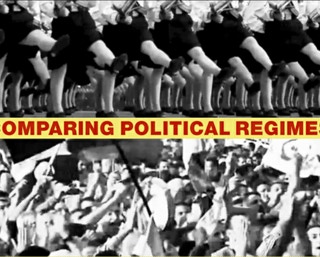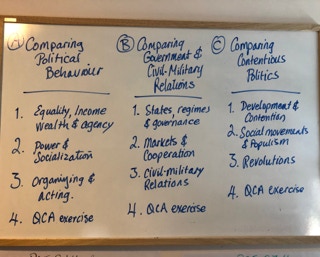-
Menu
-
Introduction
-
Evaluation
-
People
-
States
-
Contention
-
Exam
-
Home
-
Menu
POE214-2020
Comparative Political Science
-
Home
-
Introduction
-
Evaluation
-
People
-
States
-
Contention
-
Exam

Welcome to comparative politics
Formerly numbered POE320, this is an introduction to comparative politics, which is both a subject of study and a method for studying it. This year, most of you will have already taken POE220 methods, and I have adjusted the course outline to focus on a series of problems in comparative politics. We will look at problems of comparing individual political behaviour and outcomes, governance and civil-military relations, and problems of violence and contentious politics. You will learn how to apply qualitative comparative analysis to real-world problems.

Course overview
The three modules of the course each have four units, and you’ll get feedback after each unit so you will know where you stand. There is an exam, but there is no major paper. The exercises in qualitative comparative analysis (QCA) for each module are progressive, so you will learn about both the subjects in each module, and the methods used to study them.

Succeeding in the course
You will succeed in this course by keeping up with the work each week, and thinking ahead to the fourth unit (QCA exercise) in each module. Marks are assigned for participation and quizzes each week, and all the materials are accessible online. You will have an opportunity to help set the questions on the final exam based on how you have met the learning objectives through both comparative content and comparative methods.
This is a privately hosted personal website. RMC, DND, and Government of Canada are not responsible for its content. Last updated July 2020.
David Last, CD, PhD
Associate Professor, Political Science
Royal Military College of Canada
Call: +1(613)532-3002
